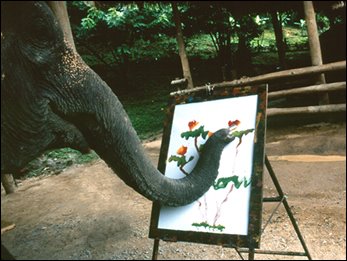 - USA Today current school segregation article by Annette Fuentes March 13, 2007
- USA Today current school segregation article by Annette Fuentes March 13, 2007- Earl Warren biography
Brown vs. Board of Education (1954) was a huge step towards the dream of an unsegregated nation, and as such its repercussions can be felt to this day. Prior to the supreme court’s ruling, the education of black children was conducted in vastly inferior conditions to that of white children, if even allowed by law.
The case was a turning point for America, because it preceded and hastened the civil rights act of 1964, and overruled the previous case Plessy vs. Ferguson (1896), which made “separate but equal” the norm in American society. Of course the argument could be (and was) made that “separate but equal” is a contradiction in terms, especially in the case of education. The court used the process of Judicial Review to overturn the precedent set by Plessy vs. Ferguson (as mentioned above), and the case was combined with four others: Briggs vs. Elliott (filed in South Carolina), Davis vs. County School Board of Prince Edward County (filed in Virginia), Gebhart vs. Belton (filed in Delaware), and Bolling vs. Sharpe (filed in Washington D.C.). The supreme court’s decision ushered in an age of integrated school systems, which in turn contributed to the desegregation of the nation because from that point on protests against racial discrimination grew steadily more impassioned and effective, assisted in no small part by Martin Luther King Jr..
One need only consider the possible consequences for modern America had this case not passed to gain an understanding of its importance. Where would we be today if Brown vs. Board of Education had never seen the light of day? The rich tapestry of history always looks simple in hindsight, but it is impossible to accurately and effectively postulate the path events would have conspired to lead us down had a certain critical juncture of yore failed to manifest. Perhaps the relatively equal racial playing field we all (for the most part) know and love would never have materialized. Maybe it would have actually regressed to the state it was before the Civil war, or turned upside-down and subjected the historically “superior” white man to the harsh vagaries of unreasoning hatred he so often visited on his perceived inferiors.
Amid all the to-do about past injustices, it is easy to overlook the implications of the closest modern equivalent to slavery; sweatshops, and the role developed nations (like America) play in their perpetuation. It is true that the practice of outsourcing pays its laborers, and therefore is not technically slavery, but we must ask ourselves: does this slight difference truly makes it that much more morally acceptable? Acceptable enough for America; the land of the free and the home of the brave, to prop up and encourage sweatshop labor, essentially just a step down from the now-outlawed practices that are simultaneously the foundation of our nation and a terrible stain in our history books? Paying workers a miniscule fraction of what their work is worth while they labor in appalling conditions mass producing almost everything we need simply because no laws explicitly forbid it is a state of affairs nearly as alarming to me as studying our country’s checkered past. I see it as a mere extension of the mindset that promoted racial discrimination and slavery within our own borders, differing only by location. Certainly it has been curbed somewhat from the extremes of segregative passion that flourished in the 1800’s, but the concept of heaping all of a country’s difficult manual labor on the members of a foreign nation still smacks of prejudice.
Sadly, racial integration was not unanimously embraced by the white public, perhaps an inevitable by-product of centuries of deeply entrenched racism and the leisure afforded by free labor. In several cases it was taken to extremes, such as Senator Harry F. Byrd's Massive Resistance movement which called for, among other things, closing schools rather than integrating them, or Arkansas Governor Orval Faubus mobilizing his national guard to prevent African Americans from attending Little Rock High School. As we look back into the piebald annals of the past, we must strive to grow and learn from them, for truly our record of history is the only thing capable of shielding us from the darkest depths of savage barbarity, for we as a species possess the means for both appalling cruelty and uplifting benevolence.
(I know the sources are messed up but I can't fathom how to fix them)
"Brown v. Board of Education." Brownvboard. Brown Foundation. 2 Oct. 2008
.
"Brown v. Board of Education." Wikipedia. 1 Oct. 2008
.
"Findlaw/Cases and Codes." Findlaw. 2 Oct. 2008
<http://caselaw.lp.findlaw.com/scripts/getcase.pl?court=US&vol=163&invol=537>.
"Briggs v. Elliott (1954)." Usca. 2 Oct. 2008
.
"Davis v. County School Board of Prince Edward County, VA.." Brownvboard. Brown Foundation. 2 Oct. 2008
.
